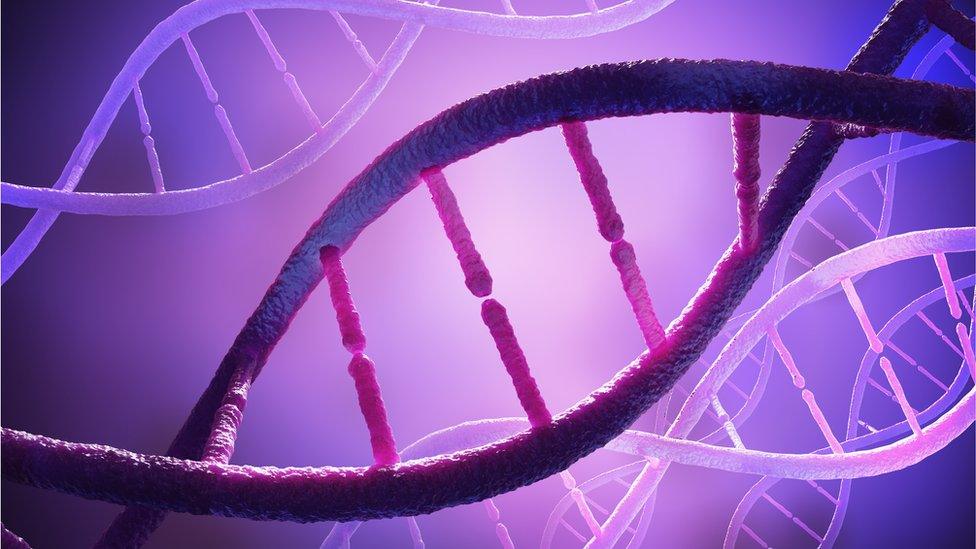World Down Syndrome Day 2024: What is it all about?
- Published
Hugo has Down syndrome and he's inspired his family so much, they've set up an inclusive gymnastics club
People across the globe will be marking World Down Syndrome Day on 21 March.
The awareness day was first celebrated in 2006, and has been officially observed by the United Nations since 2012.
It is a day to raise awareness of the genetic condition. This year, the theme of World Down Syndrome Day is: End the stereotypes.
The theme aims to discourage people from treating all people with Down syndrome as if they are the same and underestimating them or excluding them.
One of the ways people mark the day is by wearing colourful socks - so if you see somebody out today in colourful socks, this might be why.
Read on to find out more about the condition...
This is when someone makes a judgement about another person based on false - and sometimes insulting - ideas.
What is Down's syndrome?
World Down Syndrome Day: Martin meets Ciara and Duncan (2022)
Down syndrome is a genetic condition which typically affects someone's learning and physical features.
It is not a disease, an illness or a condition that someone can catch.
How does Down syndrome affect a person?

People who have Down syndrome have different personalities and abilities to each other, just like anybody else.
Typically, everybody with the condition will experience some level of difficulty learning, so it might take a person with the condition a little longer to process information, carry out a task or learn new skills.
People may also share common physical characteristics (for example, a smaller mouth and one individual line across the palm of their hand), but they will look like their parents just like anybody else.
Individuals with Down syndrome may be more likely to have some health problems - for example, with their hearing - so children with the condition might go to the doctor a little more often to keep on eye on their health. It can also cause speech problems, so a person might have speech therapy to help with this.
The majority of people with the condition walk and talk, go to ordinary schools, play sport if they wish and lead a fairly typical life.
How common is Down syndrome?

About one in every 1,000 babies is born with the condition
About one in every 1,000 babies is born with the condition. There are currently about 60,000 people in the UK with Down syndrome.
It is a little more likely for a woman to have a child with Down syndrome if she has a baby when she is older.
It occurs completely by chance in all races, in all countries across the world.
What causes Down syndrome?

The condition occurs completely by chance in all races, in all countries across the world
Down syndrome is a genetic condition, which means it is caused by something in a person's genes.
Our bodies are made up of billions of tiny cells, and each cells contains genes. Genes are grouped together in structures called chromosomes.
Genes contain important information that determine features like our eye colour and whether we are a boy or a girl.
Usually, cells contain 46 chromosomes. But Down syndrome happens when all, or some, of the cells in a person's body have 47 chromosomes due to an extra copy of chromosome 21. This is why you might also hear the condition being called trisomy 21.
Professor Jerome Lejeune proved that this is what causes Down syndrome in 1959.
• Trisomy 21 - All the cells have an extra chromosome 21 (most people with Down's syndrome have this type)
• Translocation - The added genetic material on chromosome 21 is attached to another (around 4% have this type)
• Mosaic - Some cells in the body, not all, have an extra chromosome 21 (this is the least common type)
Why is it called Down syndrome?

Down syndrome happens as a result of a slight change within a person's genes
Down syndrome is named after Doctor John Langdon Down who first published information about the condition in 1866.
Since then, we've learned a lot more about the condition.
Are you doing anything to mark World Down Syndrome Day? Let us know in the comments below!
- Published19 November 2022

- Published22 March 2019
- Published21 March 2018

